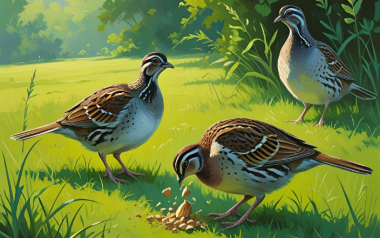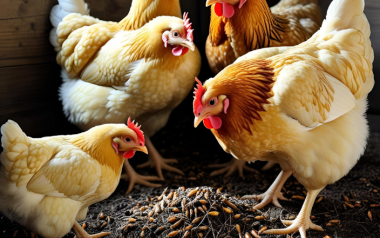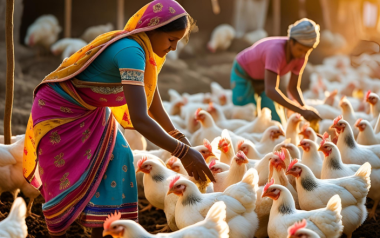Sources: Available upon request
13 May 2025
Poultry demand boosts feed output
As poultry production expands, the demand for high-quality feed intensifies. Poultry feed—composed mainly of corn, soybean meal, vitamins, and minerals—is essential for bird health and productivity.
Poultry demand boosts feed output
The global poultry industry is experiencing rapid growth, driven by increasing consumer demand for affordable, high-protein meat. Chicken, in particular, has become the most consumed meat worldwide due to its low cost, short production cycle, and adaptability to various cuisines.
Feed: the backbone of poultry production
As poultry production expands, the demand for high-quality feed intensifies. Poultry feed—composed mainly of corn, soybean meal, vitamins, and minerals—is essential for bird health and productivity. Feed conversion efficiency, or how effectively birds convert feed into body mass, is a key factor in farm profitability.
Feed industry growth and innovation
Poultry feed now accounts for nearly half of global compound feed production, and this share is expected to grow as poultry continues to outpace other livestock sectors. Feed manufacturers are scaling up production, investing in R&D, and adopting precision nutrition strategies to meet demand and improve efficiency.
Technological advancements in feed
Innovations such as enzyme additives, probiotics, and digital monitoring tools are helping producers enhance feed efficiency and bird health. These technologies not only boost productivity but also support sustainability by reducing waste and environmental impact.
Agricultural ripple effects
The rising demand for poultry feed is also influencing global agriculture. Crops like corn and soybeans, which are primary feed ingredients, are seeing increased demand. This affects commodity markets and farming practices, highlighting the interconnectedness of food production systems.
Sustainability challenges
Despite its efficiency, the poultry sector faces sustainability challenges. Concerns about land use, water consumption, and greenhouse gas emissions are prompting exploration of alternative feed ingredients such as insect protein and algae. Sustainable farming practices are becoming increasingly important to balance growth with environmental responsibility.
Conclusion
The global appetite for poultry meat is a powerful force reshaping the feed industry. As demand continues to rise, collaboration across the poultry, feed, and agricultural sectors will be essential to ensure that growth remains economically viable and environmentally sustainable.








































